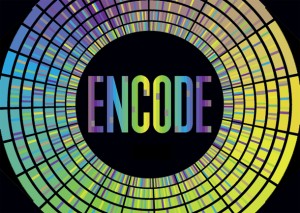Pathologists and clinical laboratory managers may see an explosion of new diagnostic tests in the wake of ENCODE’s discoveries
You know it’s big news when multiple scientific journals publish numerous papers on the same day, covering the same genetic research topic. That is why pathologists and clinical laboratory professionals will want to learn more about “ENCODE,” the global research initiative that is the source of almost 40 published papers during recent weeks.
Of equal importance, this is basic science that is unlocking knowledge of human DNA that is expected to drive an entire new field of medical diagnostics. In turn, the host of new medical laboratory tests based on ENCODE’s new scientific findings will create additional opportunities for the nation’s clinical laboratories to deliver more value to physicians and patients.
Breakthrough DNA Discoveries Surprise Researchers
The big news is that researchers participating in ENCODE have identified up to 4 million critical “gene switches.” The switches reside on the 80% of human DNA that has long been considered “junk.” What this means for pathologists and clinical laboratory professionals is that this new knowledge is expected to fuel an explosion of diagnostic tests that can detect more human diseases earlier and with greater precision.

One goal of the ENCODE project is map the uncharted 99% of the human genome, sometimes called dark matter. In a recent blitz of published papers, ENCODE researchers have shared how they have linked more than 80% of the human genome sequence to specific biological functions. They succeeded in mapping more than 4 million regulatory regions where proteins specifically interact with the DNA. This information is likely to find application in clinical laboratory testing and molecular diagnostics. (Graphic copyright Discover Magazine.)
On September 5, prestigious scientific journals published a coordinated set of multiple papers and reviews announcing the discoveries, according to a National Human Genome Research Institute (NHGRI) press release. Almost 40 papers associated with ENCODE research appeared in print, almost simultaneously. That unusual event is, in itself, a sign of the importance of these new scientific findings.
The published papers included one main integrative paper, plus five related papers in the journal Nature. Genome Research published 18 papers. Genome Biology published 6. Additionally, six review articles are being published in the Journal of Biological Chemistry, as well as two related papers in Science and one in Cell, the release stated.
The findings are the outcome of a mammoth federal research project called ENCODE, an acronym of the Encyclopedia of DNA Elements. NHGRI, part of the National Institutes of Health (NIH), launched the project in 2003. The concerted effort involved 440 scientists from 32 laboratories around the world.
The ENCODE findings surprised researchers in two ways. First, they were surprised to find that at least 80% of the DNA is in fact active and needed. Second, they did not expect that a large proportion of this “junk” DNA is gene switches. “[Before ENCODE,] if you had said half of the genome—and probably more—has instructions for turning genes on and off, I don’t think people would have believed you,” observed John Stamatoyannopoulos, M.D., Associate Professor of Genome Sciences and Medicine at the University of Washington, in a story published in The New York Times. Stamatoyannopoulos participated in the ENCODE project.
The scientific community already considers the ENCODE discoveries a major medical and scientific breakthrough with enormous implications, the Times reported. The data showed that many complex diseases appear to be caused by minute changes in hundreds of gene switches. “Most of the changes that affect disease don’t lie in the genes themselves,” explained Michael Snyder, Ph. D., Professor and Chair of Genetics at Stanford University, in the Times story. “[T]hey lie in the switches.” Snyder is Director of the Stanford Center for Genomics and Personalized Medicine and worked on the ENCODE project.
“[These papers] will definitely have an impact on our medical research on cancer,” added Mark A. Rubin, M.D., Professor of Pathology and Laboratory Medicine at Weill Cornell Medical College. Dr. Rubin, a genomics researcher, was not part of the ENCODE project.
Variety of Data Takes Knowledge of Genome to Next Level
The ENCODE project produced a staggering15 trillion bytes of raw data. It took the equivalent of more than 300 years of computer time to analyze the complex information.
“ENCODE has taken our knowledge of the genome to the next level,” observed Ewan Birney, Ph.D., Associate Director at the European Bioinformatics Institute in the United Kingdom, in the NGHIR press release. Birney is lead ENCODE analysis coordinator.
Pathologists and clinical laboratory managers will want to stay current with the developments associated with the ENCODE project. At a minimum, these discoveries signal a dramatic increase in the development and utilization of new DNA-based tests. This is also the time to deepen strategies to educate and assist clinicians as they prepare themselves to accommodate new ways to diagnose disease and develop appropriate therapies for their patients.
—Pamela Scherer McLeod
Related Information:
National Human Genome Research Institute
Bits of Mystery DNA, Far From ‘Junk,’ Play Crucial Role
ENCODE data describes function of human genome
For Nature’s overview of ENCODE:
THE DARK REPORT: Clinical Labs and Whole Human Gene Sequencing



